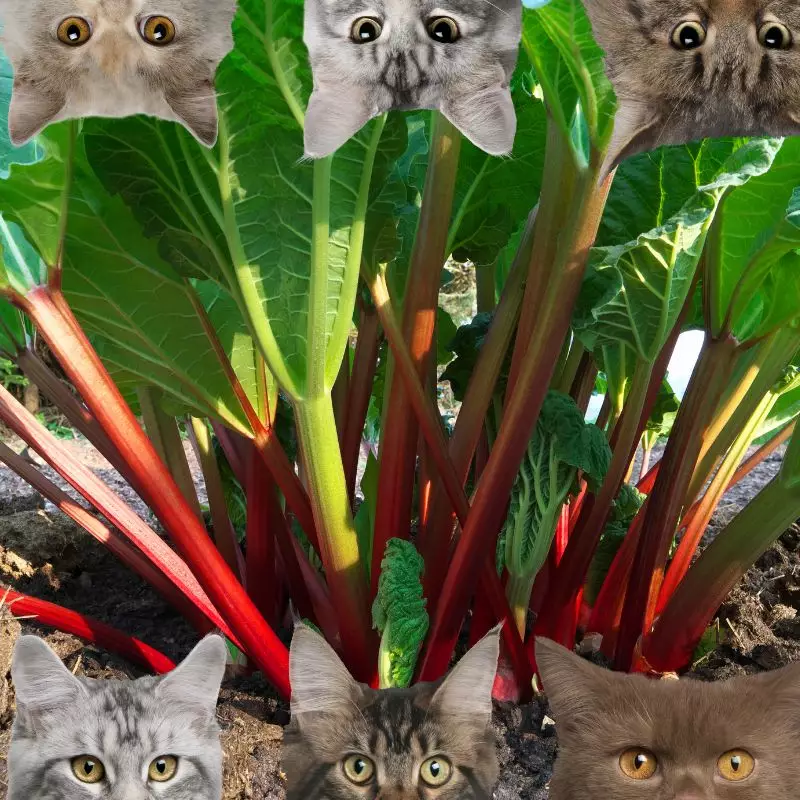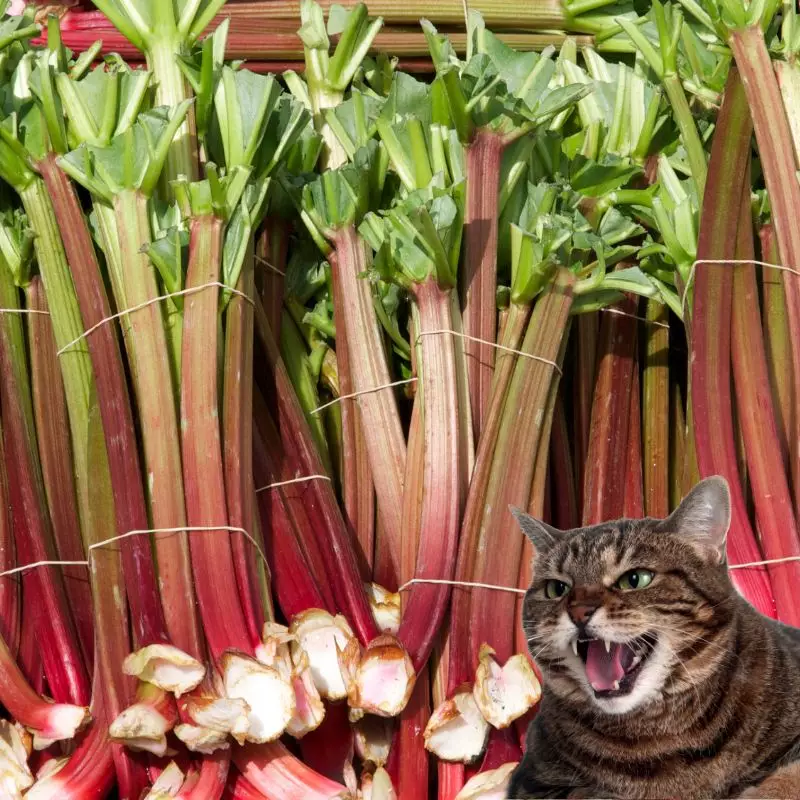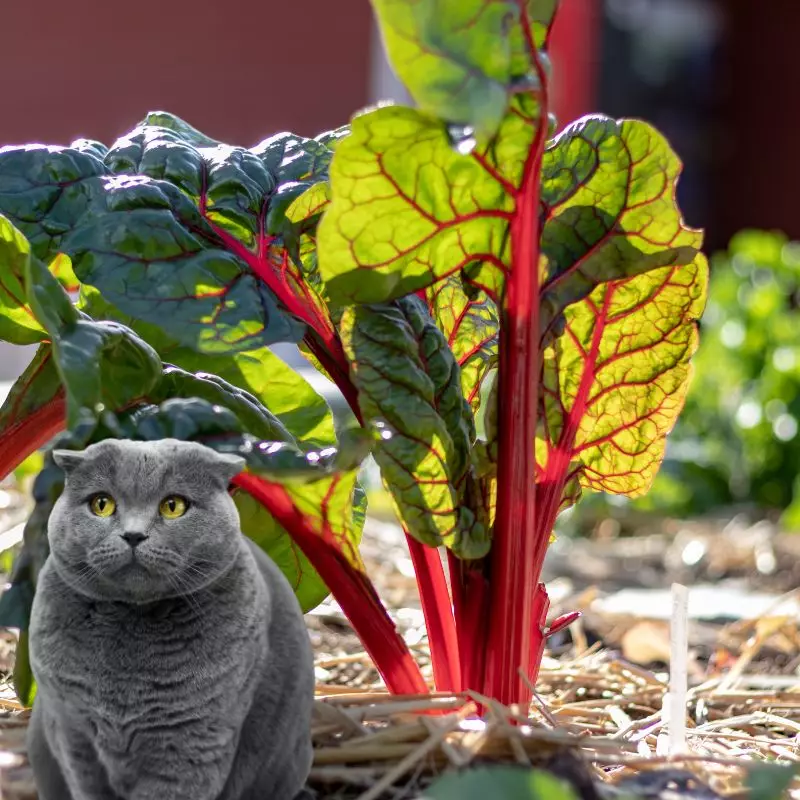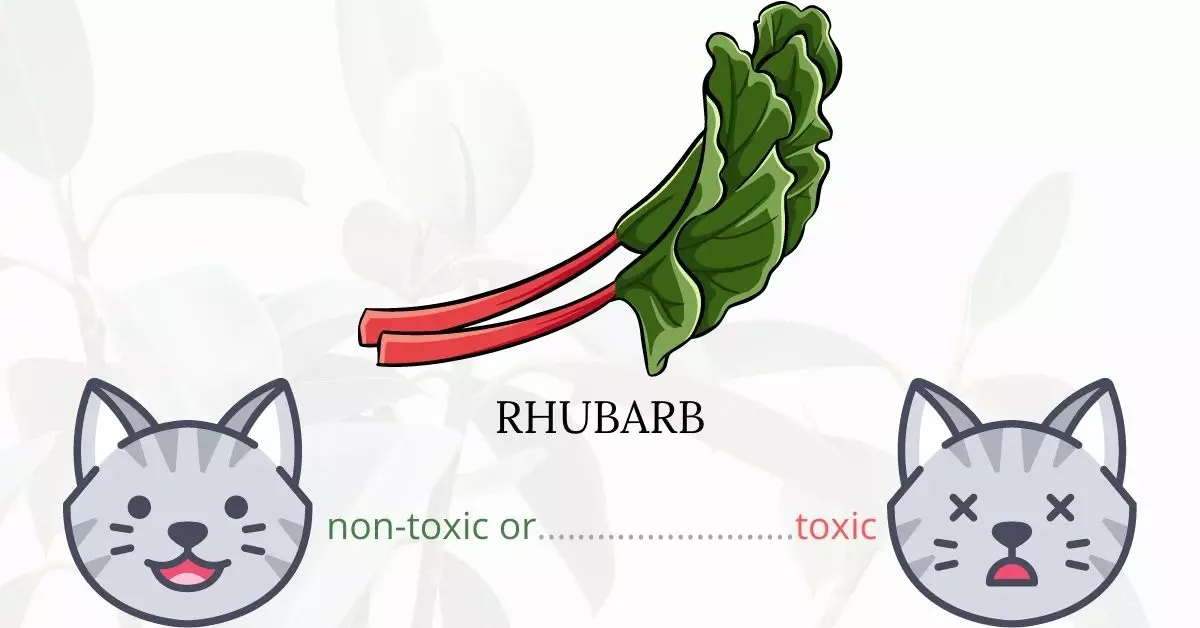Pie Plant, more commonly known as Rhubarb, does indeed pose toxic risks to cats, primarily due to the presence of chemical solubles like calcium oxalates. These compounds primarily function as a deterrent to potential predators, causing irritation to the delicate tissues of the lips, cheeks, and digestive system, and inducing symptoms such as pain and vomiting by directly damaging the tissues they contact. Upon absorption by the body, oxalic acid, a component of calcium oxalates, can impair coordination and induce muscular tremors. Its most hazardous effect, however, is its high nephrotoxicity, meaning it can severely damage kidney tissues and can be fatal.
This article is crafted in collaboration with a team of experienced Doctors of Veterinary Medicine (DVMs), ensuring the provision of accurate and current information regarding the potential risks of Pie Plant and its effects on cats. The insights from our experienced veterinary contributors and rigorous research from high-authority websites such as ASPCA and PetMD allow us to present comprehensive information on the risks various plants, including Pie Plant, pose to the health of cats.
Clinical Signs of Pie Plant or Rhubarb Poisoning in Cats

Pie Plant, or Rhubarb, primarily contains toxins in its leaves and roots, and cats may exhibit various symptoms if they come into contact with, or consume, this plant. Understanding each sign is crucial for early detection and prompt treatment.
- Vomiting: Vomiting occurs as the body’s response to eliminate the ingested toxins. Ingestion of Pie Plant can cause irritation to the gastrointestinal tract, prompting the cat to vomit as a means to expel the harmful substances.
- Salivation: Excessive salivation is a common response to oral irritation. The chemicals in Pie Plant, particularly oxalic acid, can cause irritation to the cat’s mouth, leading to increased salivation as the body’s natural response to soothe the irritated area.
- Oral Irritation: The calcium oxalates present in Pie Plant can cause direct damage to the delicate tissues of the lips and cheeks, causing discomfort and irritation in the cat’s mouth, which might manifest as pawing at the mouth or reluctance to eat.
- Tremors: Upon absorption, the oxalic acid affects the cat’s neuromuscular system, leading to muscular tremors. These tremors are involuntary muscle contractions and relaxations and are a sign of neurological disturbance due to the toxin.
- Kidney Failure: The most severe consequence of Pie Plant ingestion is kidney failure. The high nephrotoxicity of oxalic acid means that it is extremely harmful to kidney tissues. If not treated promptly, it can lead to irreversible damage to the kidneys, which can be fatal.
Each of these symptoms is a manifestation of the body’s reaction to the toxic components of Pie Plant, occurring as the system’s attempt to mitigate and signal the harm being caused by the ingested plant material. Immediate veterinary attention is paramount if a cat is suspected of having ingested or come into contact with Pie Plant, to address and alleviate the clinical signs and prevent lasting damage.
First Aid and Treatment of Pie Plant or Rhubarb Poisoning in Cats

The most common plant poisonings are treated mostly by starting the cat on hydration therapy. This will relieve the symptoms of dehydration by directly putting liquid into the cat’s body while also draining the toxins out of its system by inducing urine. The veterinarian may also decide to give the cat a dose of precipitated chalk to reduce the acidity in the stomach, preventing further harm and making recovery simpler. It may also be required to take a dose of activated charcoal afterward to absorb any remaining oxalic acids in the digestive tract.
Recovery from Pie Plant Poisoning in Cats

In the days following the poisoning, you should provide plenty of liquids as well as a bland meal to allow the cat’s stomach to recuperate. The majority of rhubarb-poisoned cats will recover in around two weeks. A follow-up session with the veterinarian may be required in extreme cases.
Prevention of Pie Plant Poisoning in Cats
Be careful when using rhubarb when cooking at home. Dispose of the unused part properly and make sure that your cat will not have acces to it. Avoid feeding food scraps to your cat which may contain rhubarb or other toxic plants. Keeping your cat indoors is also highly suggested to lessen the chances of encountering pie plant and other toxic plants in your surroundings.
If you love plants but have cats at home, check out these lists:





